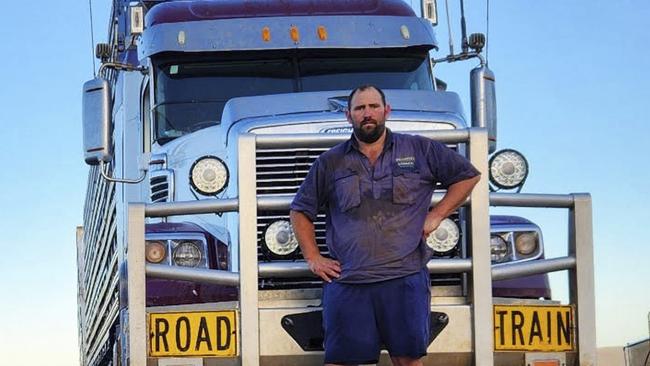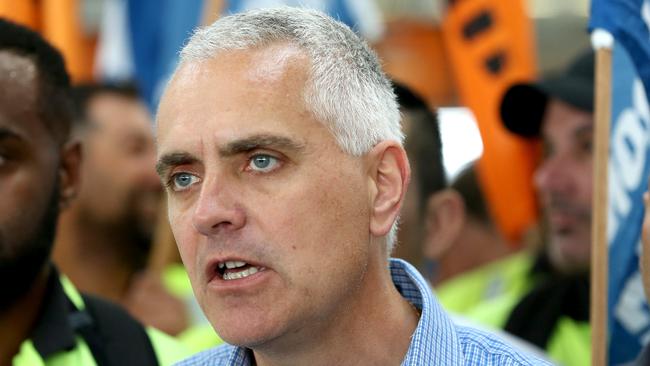Owner-driver truckies warn new industrial relations proposals pushed by unions could hurt industry
Truckie AJ Pengilly reckons most politicians in Canberra have no idea what it is really like to spend a life working on the road, and is worried the government’s reforms will hurt the transport sector.

AJ Pengilly reckons most politicians in Canberra have no idea what it is like to spend a life working on the road.
The 41-year-old truckie, who started in the industry as a mechanic at 17, now owns his own rig carting livestock – cattle, pigs, goats and sheep – across the country from his base on South Australia’s Yorke Peninsula.
Mr Pengilly lived through the fraught Road Safety Remuneration Tribunal – set up by the Gillard government in 2012 – and, like many in the sector, emerged bruised and cynical about politicians and their reforms.
Now as the Albanese government pushes industrial relations reforms for the road transport industry, the owner-driver says the trucking industry cannot face more disruption under the guise of “safety”.
“The problem is people weighing in with their two cents’ worth have never done the job,” he said.
“They don’t know what we go through, what we have to deal with. That bugs me a fair bit.
“It took a lot of pushing for them to sit and listen (during the RSRT debate), which was infuriating.
“Going through the whole Covid thing, it stood out how much the country requires us. Nothing in the country magically rocks up on your doorstep. Somehow, somewhere, it’s been on a truck and it’s been shifted.
.“The whole rail network would never ever suffice to do what we do.
“It’s been pretty quickly forgotten how much they praised us through Covid, and now they’re trying to hamstring us again.”
Industrial Relations Minister Tony Burke’s proposed “employee-like” reforms and protections for independent contractors would consider allowing the Fair Work Commission – or a new adequately resourced independent body – to set minimum standards to ensure the road transport industry was safe, sustainable and viable.
According to a consultation paper circulated by the government, the body could resolve disputes, ensure transport workers could access an “effective collective voice”, and establish, maintain and enforce “appropriate standards”.
Mr Pengilly said the transport industry was too diverse for more regulation – such as fixed or minimum pay rates – to work effectively, and increasing regulation could also deter owner-drivers from upgrading equipment, when a new truck and B-double livestock trailers could cost $1m.

Transport Workers Union national secretary Michael Kaine told the union’s national conference this month that since the Coalition abolished the road safety watchdog seven years ago, 301 truck drivers had lost their lives.
“We need to intensify the fight because transport is the deadliest industry in Australia and it’s in the top 10 industries for insolvencies,” Mr Kaine said.
“The death toll on our roads keeps rising, standards in the industry keep falling – unchecked supply chain pressures literally killing people and now the gig economy, making matters even worse.”
Since Labor was elected, Mr Kaine said the TWU had not let up on its lobbying to legislate to establish a standard-setting body in transport.
Australian Trucking Association chair David Smith told The Australian the new reforms felt like “RSRT 2”.
“You’d really hope that both sides of the argument have learnt a lot since RSRT 1; it was nothing but a disaster,” Mr Smith said.
“To have the FWC introduced into our world as another level of regulation and enforcement has probably got some pretty serious consequences for us as an industry, and won’t have the intended benefit they’re seeking.”






To join the conversation, please log in. Don't have an account? Register
Join the conversation, you are commenting as Logout